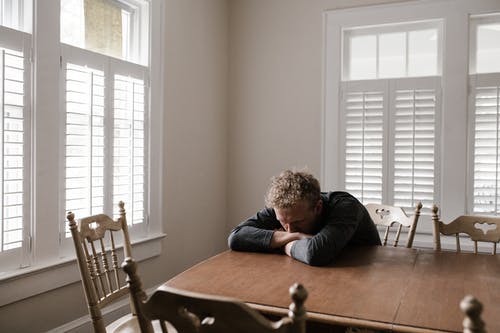Lawyers’ mental health is an issue that must be taken care of, but more importantly, it has to be communicated and acknowledged.
Recently, mental health in the legal sphere has gained more importance and significance. New statistics about lawyers’ state of health and anxiety are shocking, but they have sparked action. More law schools and law firms have started to pay attention to the wellbeing of their legal professionals. During the webinar ‘Lawyers’ mental health: how to stay calm under the stress’ Lawrina’s team touched on the topic of mental health resources for lawyers and we have decided to share a few that are worth checking out.
You can see the full recording of the webinar by the link.
Why lawyers’ mental health matters
The legal profession is challenging, not only due to the excess amount of work people have to endure, but also by its competitive nature. From their beginning years in their education, lawyers are taught to excel and be the best at what they do. While this is something very important to their career success, by struggling through it, lawyers forget to check in on themselves.
“Lawyers don’t talk about it or take these issues seriously at all, at the structural, institutional, and educational levels. There is a gap in the conversation and people are left to their own vices to figure that out for themselves”
Julian Sarafian, former corporate attorney and graduate of Berkeley and Harvard Law School. Currently, authoring a book, exploring content creation, and advocating for mental health
The result of the competitive nature that lawyers endured at law school is that they end up projecting it into their professional life. This projection leads to some very upsetting statistics.
“One of the main issues is chronic anxiety, depression, and ADHD (editor’s note: Attention-Deficit/Hyperactivity Disorder). Stress is what happens outside you, the environment and the situation, while anxiety is something that happens inside you. How a lawyer responds to the situation is what causes the anxiety. If they are anxious long enough, chronically, that leads to depression.”
Pamela DeNeuve, Lawyer & Law Firm Strategist at DeNeuve & Associates, a member of the steering committee for programming for the national organization, the Institute for Well-Being in Law
We decided to look into mental health resources that help legal professionals to understand and accept the struggles they are going through.
5 of the best resources you can turn to

When the issue of mental wellbeing became known to law schools and bar associations, they started teaching their students and members to turn to mental health resources.
“Law schools can start the trend. Various bar organizations, from national to state or local, can do something about it. We need to embrace other professionals. The reality is, right now we are talking about mental health, but we don’t have medical professionals here. We need to attract medical professionals and help to solve this issue collectively.”
Olga Mack, CEO of Parley Pro, the collaborative & intuitive contract platform, Speaker, Women’s Advocate
- The ABA Commission on Lawyers Assistance Programs
The largest resource base has been created by the ABA. The association dedicated the assistance of a commission of experts to care for employers of law firms, individual lawyers, and even students. On the American Bar Association website, you can find links to organizations that work with lawyers with addictions or depression, articles that give more information about mental health in law, and resources that can help you to get to know your anxiety and how to cope with it.
The resource base also has links to information about stress and ways to overcome it. Resources are updated regularly, and it now contains information about staying mentally healthy during COVID.
Some links you should check out:
- Mental health resources for lawyers;
- Well-being toolkit for lawyers and legal professionals;
- Law student mental health resources;
- The Other Bar
“State bar lawyers’ assistance programs are out there to support lawyers and people in the legal industry in general, which is always great. It’s interesting, because I think we forget about those resources and we don’t necessarily use them. People are also afraid to join them. There is also a national organization called The Other Bar for anyone in the legal industry that has either addictions, mental health issues, or has an enabler (editor’s note: someone whose behavior allows a loved one to continue self-destructive patterns of behavior). This association puts these all together and gives lawyers a chance to vent, no matter where they are on the spectrum.”
Jolene Blackbourn, California attorney who helps prospective law students save money, time and stress on their legal journey through counseling, courses, and The Legal Learning Podcast
The Other Bar is a project that acknowledges mental health issues and tries to combat the addictions that are caused by them. Many lawyers see substances, such as alcohol or drugs, as a way for them to keep going with their huge workloads successfully. However, in many cases, that can lead to addiction. The Other Bar arranges regional meetings and even offers one-on-one mentorships to help legal professionals fight their addictions. There are even women’s meetings and consultations where you can find a community of people who are fighting the same battles as you are, and can become your support group.
- Lawyers Depression Project
As an organization for lawyers that feel mental health among lawyers has been seriously affected, Lawyers Depression Project offers peer-to-peer support groups. These monthly meetings are held remotely and are completely anonymous. The project also has a blog where you can read important information on mental health and confidential forums and group chats where the community gathers.
- Institute for Well-Being in Law
Every year, the first full week of May is dedicated to the well-being of lawyers by the Institute for Well-Being in Law. This Well-Being Week in Law is aligned with Mental Health Awareness Month. It is open to both organizations and individuals that want to hear about the latest updates in mental health in law or share their experiences. The Institute’s website also provides a base of resources that attendees or curious people can look through.
- Your employer
‘Mental health is an ‘us’ and a ‘we’ problem, not an individual problem, and we should be addressing it together. By ‘we’, I mean the bars and the law schools, and the individual employers. As someone who now leads a company and has many people under my care, I can tell you that any health issues, from physical to mental, to health issues in your family, will be affecting my company. If you are leading teams, if you are an employer, if you are somehow under delusion that those are an ‘I’ problem, they aren’t’.
Olga Mack, CEO of Parley Pro, the collaborative & intuitive contract platform, Speaker, Women’s Advocate
The most important thing at work is the environment we work in. This is why the first person that must know about the mental health difficulties you are experiencing is your employer. The responsibilities that lay on the shoulders of employers are not only the achievements of their employees, but also the state of their mind and soul.
Conclusions
“There are different organizations out there. I think part of the problem is remembering they are there when we need them, and also getting the word out more frequently. When we hear about these organizations, we may not be thinking about our mental health at the moment and when we need it, we don’t remember. Getting the word out more and more often and discussing what they do, so when we might need them, they are there and we are ready to use them, is so important.”
Jolene Blackbourn, California attorney who helps prospective law students save money, time and stress on their legal journey through counseling, courses, and The Legal Learning Podcast.
Lawyers’ mental health is an issue that must be taken care of, but more importantly, it has to be communicated and acknowledged. The more we talk about it, the more accepted it becomes to be mindful and compassionate to yourself and others. The resources in this article are only a few of the many you can find locally.


Join the conversation!